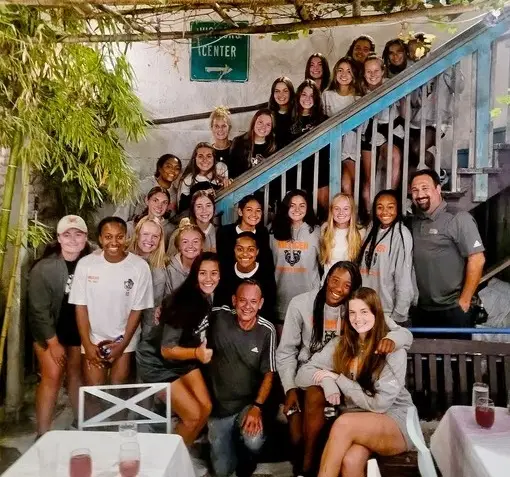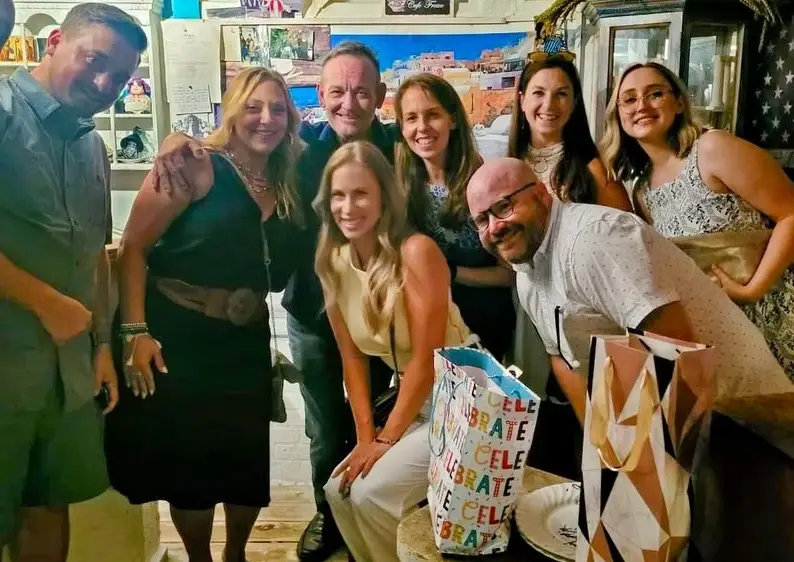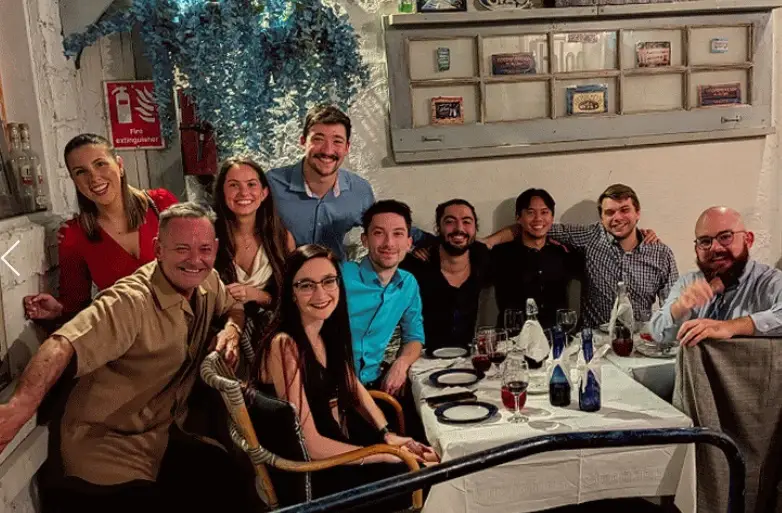1. Why Chattanooga? What made you choose this city to start OPA?
“Chattanooga wasn’t a decision made on paper. It was something I felt. It has a rhythm that calms me, and at the same time, an energy that inspires me. The people here have a kindness that isn’t superficial — it’s real. When I arrived, I didn’t feel like a stranger. I felt like I had come home.”
2. What does this choice mean to you today?
“It means everything. This is where I first felt I could build something real. Not just a business, but a relationship. With the place, with the people. And I wouldn’t trade that for anything.”
3. How did the community embrace you in the early years?
“With warmth. They came out of curiosity, they stayed out of love. They asked me about Greece, I explained the food to them, and little by little, a trust was built that’s lasted for years. And no — I don’t see them as customers. I see them as friends. Some even became family.”
4. What sets OPA apart from other businesses of its kind?
“OPA isn’t a business plan. It’s heart. We don’t have ‘customers’ — we have guests in our home. Everything we serve has a story behind it: from my grandmother Nikolia, my mother Asimina, my father Vangelis. Authenticity is not a choice. It’s a responsibility.”
5. What are you trying to share through each dish, each experience at OPA?
“Real Greece. Not the touristy version. Not the fake one. I want them to feel the scent of the village, the care of a grandmother, the conversation around the table. That’s what OPA is: a moment of truth in the middle of everyday life.”
6. What’s your relationship like with your guests?
“It’s personal. We share the same worries, the same dreams. It doesn’t matter if they’re from downtown or from out of state — they came to OPA because of its reputation, and they stayed because it felt personal to them. I know most of them by their first names. I greet them by name, I ask about their kids, about their lives.
Even if I haven’t seen them in a while, I quietly follow them on social media — and I think, ‘I hope they’re doing well.’ Because in the end, this isn’t a job. It’s a way of life.”
7. How do you feel when someone cancels a reservation last minute — especially for a large group?
“It saddens me. Not because ‘we lost a customer,’ but because I know the effort that went into it. How many people worked to prepare that table.
OPA operates strictly by reservation — and with a limited capacity of 40 people. And yet, we don’t ask for a deposit. Trust starts with us. We hold the table, we prepare, we wait… as if a friend were coming to our home.
I don’t get angry — I get disappointed. Especially when it happens out of carelessness, without reason. Because every empty seat is a story that didn’t get written.
But when there’s a real issue, I get anxious, I feel sympathy. I always hold on to respect. Because without it, we lose the essence — and at OPA, we don’t compromise on that.”







